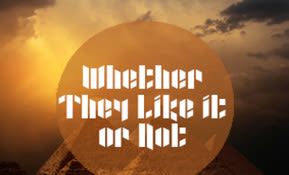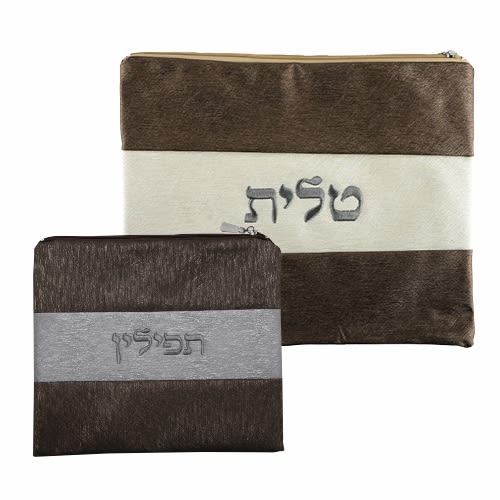
Mikeitz: Protecting the Mind
Why must Pharaoh summon both his wise men and his sorcerers? Why weren't they capable of solving Pharaoh's dream? What did Joseph have that they didn't?

"…so he summoned all the sorcerers of Egypt and all its wise men…" (Genesis 41:8).
One would think that all the sorcerers of Egypt could interpret Pharaoh's dream. And if they could not, then certainly all of Egypt's wise men would be able to. Why must Pharaoh summon both? Why weren't they capable of solving Pharaoh's dream? What did Joseph have that they didn't?
Rabbenu Bachiya in his introduction to the classic “Duties of the Heart” lists three types of wisdom, as follows:
1. Basic wisdom – this is the underlying wisdom of nature and creation, such as mathematics, chemistry, physics, botany and biology.
2. Practical wisdom – this is on a higher level than basic wisdom, what we refer to as applied science, where mankind uses the basic wisdom for his own benefit, such as in engineering and medicine.
3. Divine wisdom – this is the highest form of wisdom, the wisdom of Torah.
If I'm not mistaken, with Hashem's guidance, Pharaoh's “wise men” refer to the first type of wisdom, those who knew the secrets of nature. “The sorcerers” refer to the second type of wisdom, the applied and  practical type. As sorcerers, their black magic wasn't any different than a chemist or pharmacist, who would mix several ingredients and elicit a predictable reaction. Yet, neither the wise men nor the sorcerers could solve Pharaoh's dream.
practical type. As sorcerers, their black magic wasn't any different than a chemist or pharmacist, who would mix several ingredients and elicit a predictable reaction. Yet, neither the wise men nor the sorcerers could solve Pharaoh's dream.
After Joseph is summoned from prison to solve Pharaoh's dream, Pharoah marvels, “There is no one as wise and perceptive as you” [1] (Genesis 41:39). Pharaoh recognizes wisdom, for he has many wise men, but for the first time, he encounters deep perception that accompanies the wisdom. Pharaoh is marveling at the third type of wisdom – Joseph's wisdom of Torah.
Rabbi Nachman of Breslev teaches[2] that the type of wisdom that enables a person to perfect himself is Divine wisdom, which one acquires by serving Hashem, learning Torah and performing the mitzvoth. All other types of wisdom are inferior to Divine wisdom.
Genuine Divine wisdom, as Rebbe Nachman explains, can only come together with holiness. In other words, the more a brain is protected in holiness, the more it is a suitable climate for Divine wisdom. Divine wisdom cannot exist in an environment that lacks holiness.
Indeed, with the above principle in mind, one must protect his mind from the other types. Why? Rebbe Nachman explains that when a baby is born, his brain is constricted, but when he starts using it in the service of Hashem, in other words, he learns Torah, prayer and emuna from a tender age, his brain develops quickly and his mind expands. When a child's world is exclusively Torah and the service of Hashem, his brain potential is greatest, for his entire brain is preserved in holiness. But, when a person feeds the brain with other than Divine wisdom, then the brain's capacity for holiness – and therefore attaining Divine wisdom – is reduced in proportion to the amount of “outside” or non-Divine wisdom that enters the brain. The more brains the brain's capacity is used up on outside types of wisdom – and all the more so if the brain is occupied with folly – the less it can hold Divine wisdom and holiness.
We can now understand how Pharaoh was so impressed by Joseph, for he never saw such a display of wisdom and insight based on genuine Divine wisdom. The Targum tells us that Joseph was raised on pure Divine wisdom[3], for he was taught exclusively by his holy father Jacob. As such, Pharaoh further raves, “Is there such an individual with the spirit of the Lord with him?!”[4] Despite Joseph's tender age of thirty at the time, he outshines all of Egypt's wise men, for his holy mind is clear, his thinking is cogent and his brain is a proper vessel for Divine light.
We can also understand why we always read Parshat Miketz during Chanuka. The Greeks were very strong in "basic wisdom" and "practical wisdom" but they utterly lacked Divine wisdom. They were very afraid of the Jews' getting the upper hand; knowing that the "People of the Book" had a form of wisdom far superior to theirs, the Greeks outlawed the practice of Judaism. They tried their utmost to obliterate the Jewish People's connection to Divine wisdom – it's scary to think how they nearly succeeded. Chanuka is therefore our celebration of the miracle that Hashem performed for us by way of the Maccabees, when the holy overcame the unholy, the few overcame the many and the weak overcame the strong oppressors. The lights of Chanuka, traditionally lit with pure olive oil, represents as Rebbe Nachman explains, the illumination of the pure light of Divine wisdom in the soul of a Jew. Happy Chanuka!
[1] Genesis 41:39
[2] Likutei Moharan I:35.1
[3] See Targum Onkeles on Genesis 37:3
[4] Genesis 41:38











Tell us what you think!
Thank you for your comment!
It will be published after approval by the Editor.